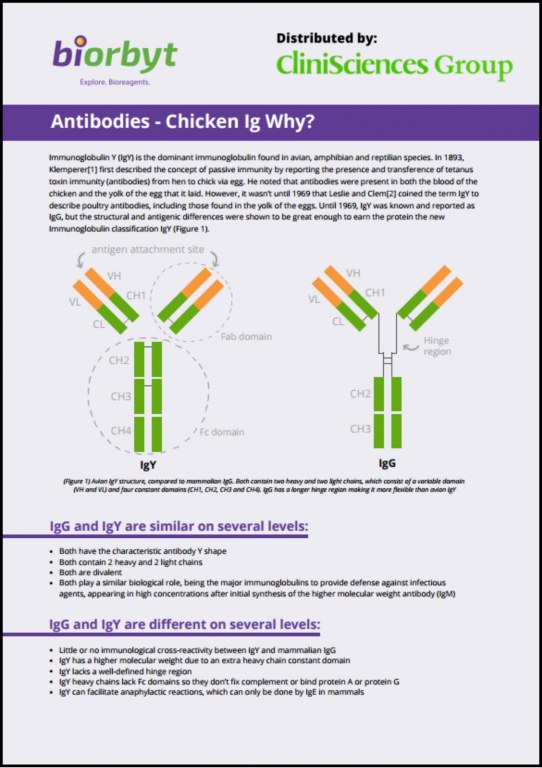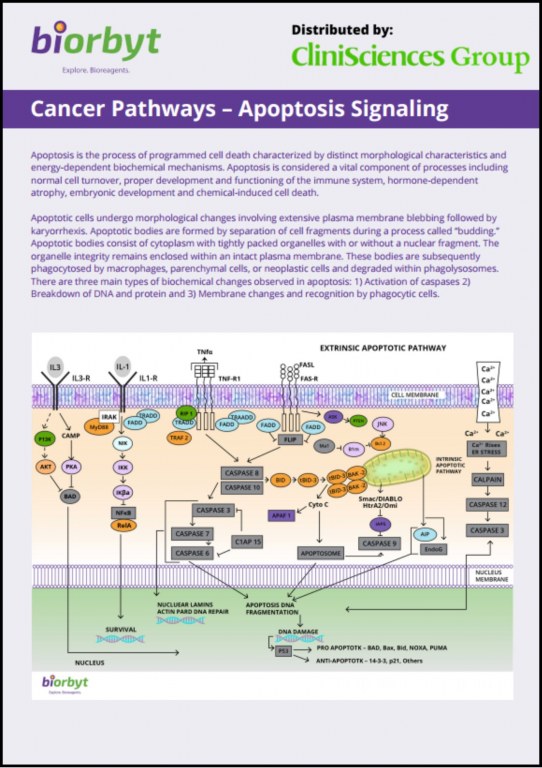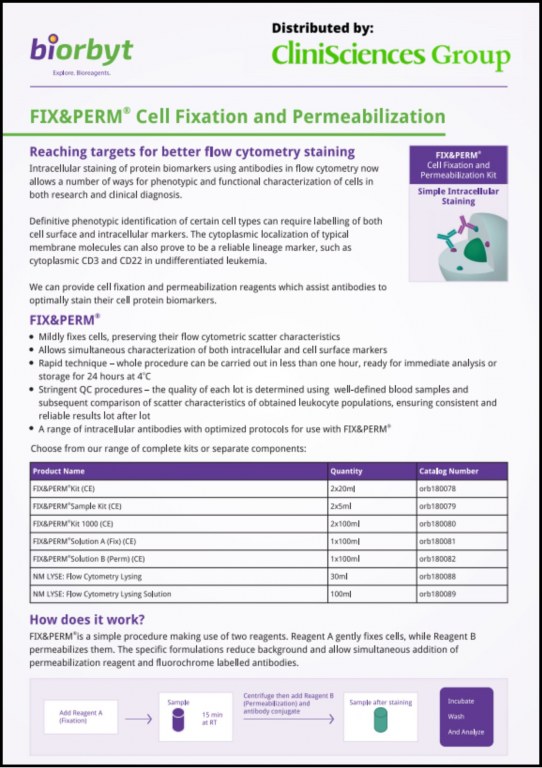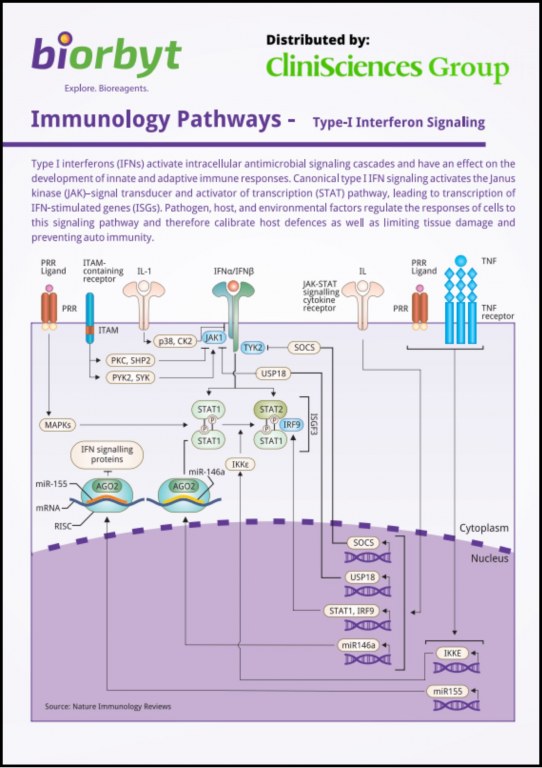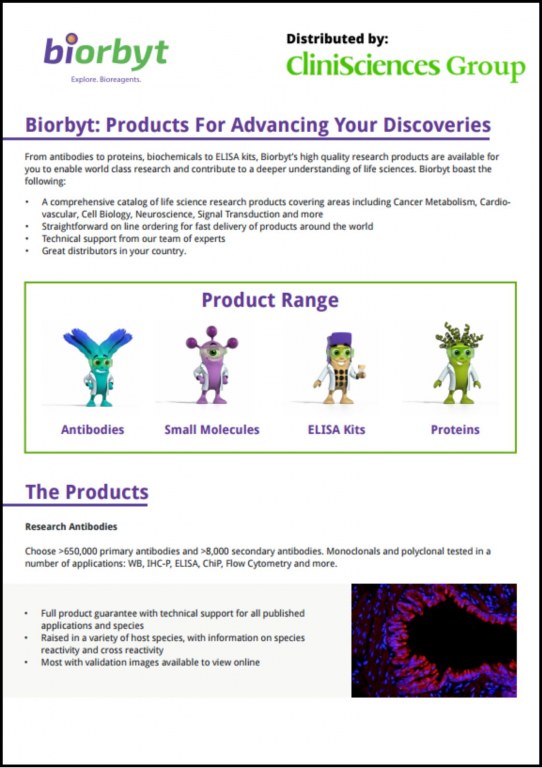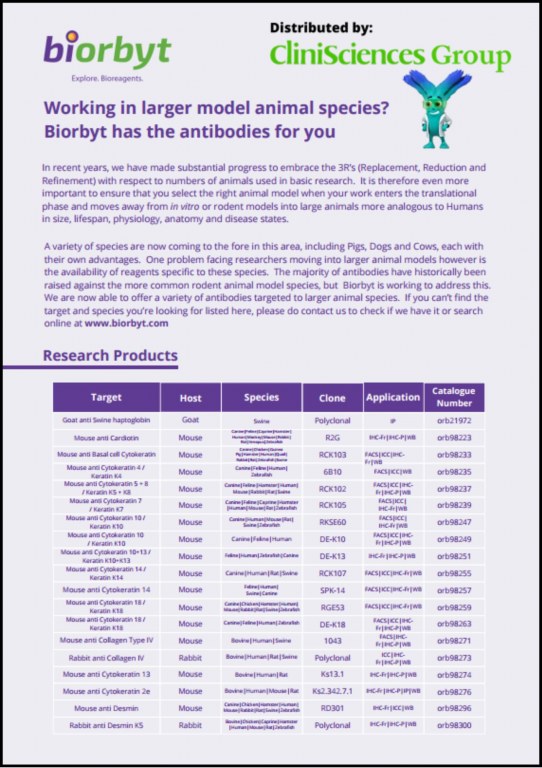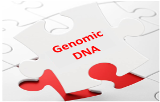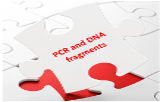Biorbyt
 |
||||||||||||||||||||||||||||||||||||||||||||||||||||
Biorbyt is a UK-based supplier specializing in life science reagents. They offer a wide range of products, including antibodies, ELISA kits, small molecules, and proteins. Researchers can choose from thousands of research antibodies and reagents for various applications. Biorbyt collaborates with top scientists and scholars to develop high-quality products, covering areas such as immunology, cell biology, molecular biology, and proteinomics. Their comprehensive offerings include immune assays, protein mass spectrometry, cell culture, custom antibody services, animal model establishment, and biochemical reagents. Biorbyt provides valuable reagents and services for biological research. With a wide selection of antibodies, assay kits, small molecules, and proteins, Biorbyt supports scientists in their experiments. They have established stable partnerships with renowned universities, research institutes, pharmaceutical companies, biotech firms, and hospitals worldwide. Biorbyt’s commitment to high-quality products and professional technical services spans immunology, cell biology, molecular biology, proteinomics, and more.
Learn more :
Watch the videos:
Website : https://www.biorbyt.com/
| ||||||||||||||||||||||||||||||||||||||||||||||||||||
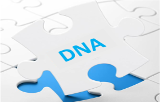
DNA extraction
- Solution methods (such as the phenol-chloroform method)
- Methods based on the solid phase (such as magnetic beads or centrifugation columns).


